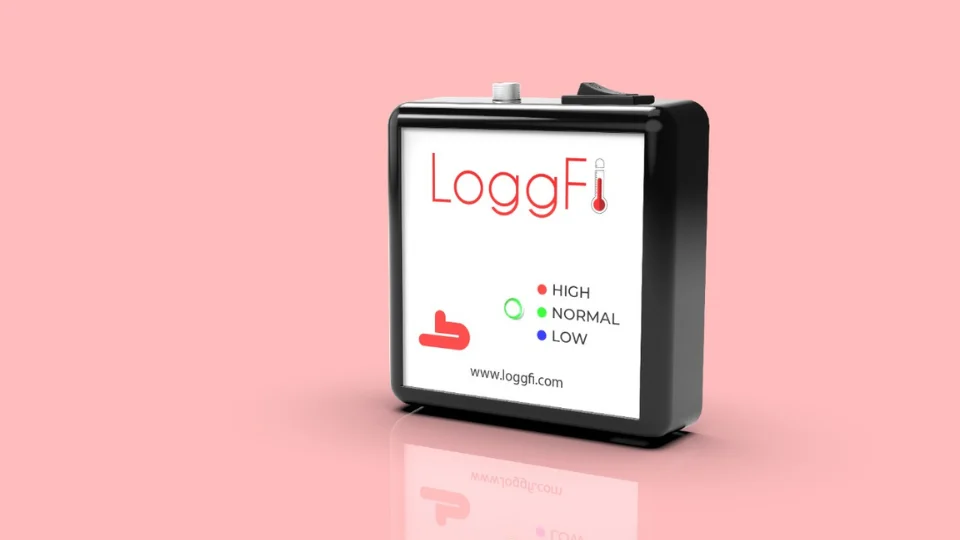Always Connected: How GSM Data Loggers Power Effective Remote Temperature Monitoring
In countless industries across India and the globe – from pharmaceuticals and food logistics to agriculture and environmental science – maintaining precise temperatures isn't just important, it's critical. But what happens when the items or environments you need to monitor are miles away, constantly moving, or located in areas without readily available internet infrastructure? This is the challenge of remote temperature monitoring.
Ensuring the integrity of a vaccine shipment crossing state lines, monitoring soil conditions in a distant agricultural plot, or checking the climate inside a remote storage facility requires technology that transcends geographical limitations and infrastructure gaps. While traditional methods fall short, GSM Data Loggers have emerged as a powerful and reliable solution.

The Challenge of Monitoring from Afar
Remote temperature monitoring means keeping track of temperature conditions without being physically present. Traditional approaches face significant hurdles in these scenarios:
- Manual Checks: Impractical, infrequent, prone to human error, and impossible for goods in transit or truly remote locations.
- Standard Data Loggers: Often require physical retrieval to download data, meaning issues are only discovered after the fact.
- Wi-Fi Data Loggers: Excellent for facilities with stable Wi-Fi, but useless in moving vehicles, temporary sites, or areas lacking network coverage.
These limitations can lead to costly spoilage, compromised research, regulatory non-compliance, and potential safety risks.
Enter GSM Data Loggers: Leveraging Cellular Power
GSM (Global System for Mobile Communications) data loggers operate using the same technology as your mobile phone. They contain a SIM card and connect directly to cellular networks (like Airtel, Jio, Vi, BSNL in India) to transmit data. This simple, yet powerful, approach fundamentally changes the game for remote monitoring.
How GSM Connectivity Revolutionizes Remote Temperature Monitoring
GSM technology directly addresses the core challenges of monitoring distant or mobile assets:
Ubiquitous Connectivity
Cellular networks cover vast geographical areas, exceeding Wi-Fi ranges. Operates independently of local IT.
Real-Time Data Transmission
Data is actively pushed to a secure cloud platform via cellular at regular intervals for instant visibility.
Instant, Actionable Alerts
Immediate SMS, email, or app alerts on threshold breaches allow for rapid intervention.
True Mobility and Flexibility
Perfect for reefers, containers, and mobile assets without needing local Wi-Fi connections.
Centralised Data Access
Access historical and current data (and location) from anywhere via web or app.
Simplified Deployment
Activate SIM, configure basic settings (often via cloud), and deploy without complex network setup.
Enhanced Reliability
Less dependent on local power or potentially unstable local internet connections.
Where GSM Data Loggers Make the Difference
The benefits of GSM connectivity shine in numerous applications:
- Cold Chain Logistics: Real-time tracking of pharmaceuticals, food, and beverages during transport.
- Remote Asset Monitoring: Warehouses, storage containers, server rooms, or agricultural facilities.
- Environmental Monitoring: Tracking conditions in remote ecological study sites, rivers, or fields.
- Healthcare: Monitoring vaccine refrigerators in remote clinics or during transport.
- Construction: Ensuring proper curing temperatures at distributed sites.
Loggfi: Your Partner in Remote Monitoring
At Loggfi, we understand the unique challenges of remote temperature monitoring in the Indian context and beyond. Our range of robust GSM data loggers provides the reliable connectivity, real-time data, and instant alerts you need to protect your valuable assets, ensure compliance, and maintain quality, wherever they may be. Explore our GSM Temperature Loggers.
Conclusion
Effective remote temperature monitoring is no longer a logistical nightmare. GSM data loggers provide a reliable, scalable, and accessible solution by leveraging the power and reach of cellular networks. They deliver the real-time visibility and immediate alerts necessary to manage temperature-sensitive goods and environments proactively, bridging the distance and ensuring peace of mind.